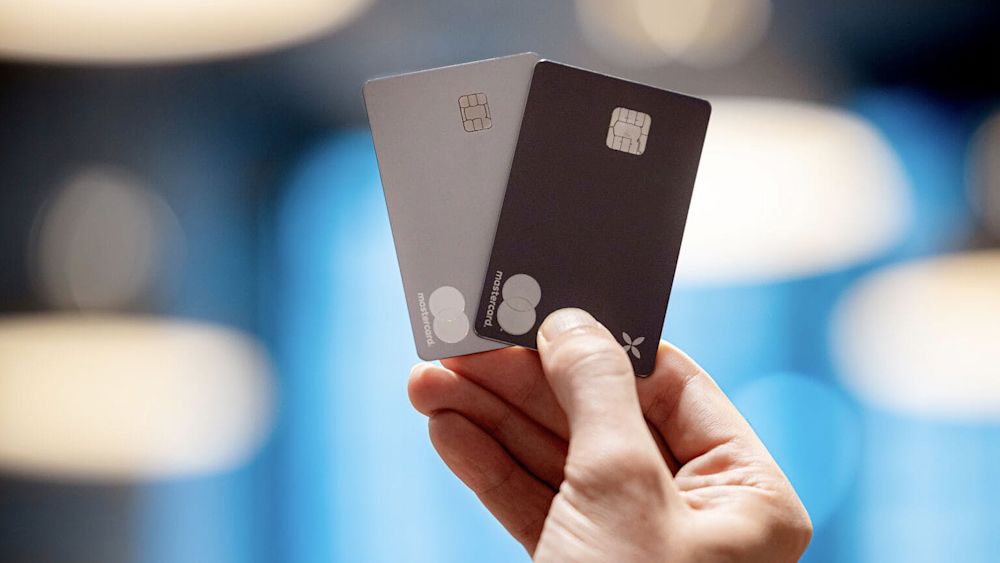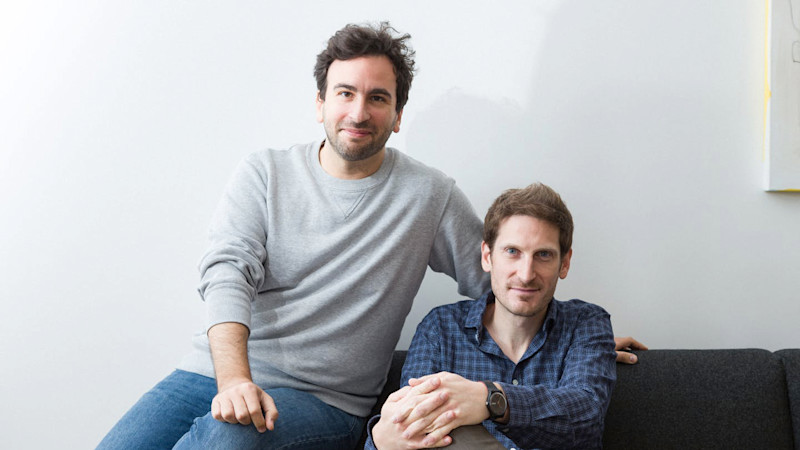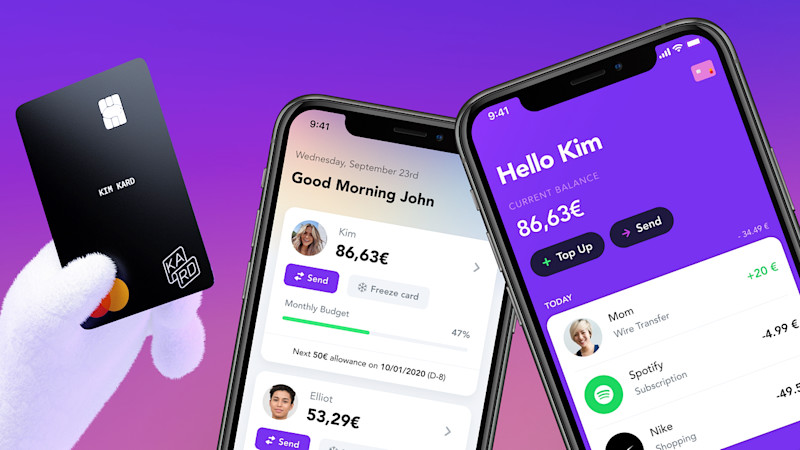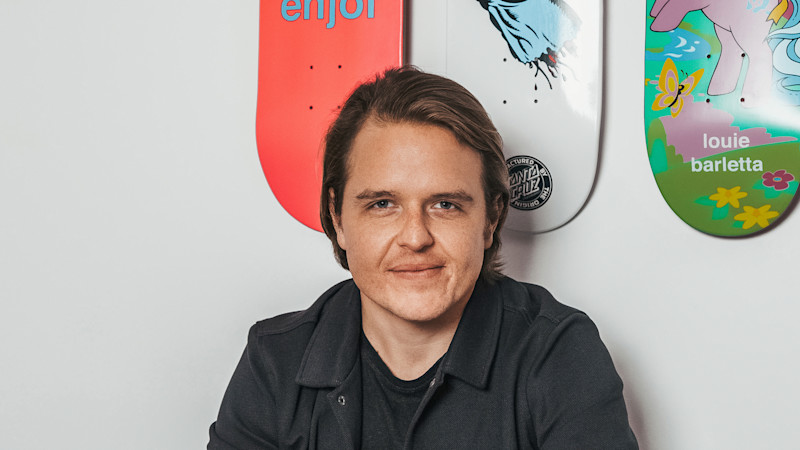- Iterate
- Meet The Team
- Qonto and Kard Have Set Out to Revolutionize the Banking Experience in France
Qonto and Kard Have Set Out to Revolutionize the Banking Experience in France
Table of contents
Redesigning the banking experience from the ground up has driven interest amongst both entrepreneurs and investors, with a new generation of young digitally savvy founders emerging over the last decade to take on the old incumbents. The Org talked to the founders of banking startups Qonto and Kards to understand how these newcomers have managed to thrive in a highly regulated and concentrated market.

In France, almost seven in ten people have a good image of French banks (68%) and more than six in ten see banks favorably in general (61%), a Feb. 2021 study by the Fédération Bancaire Française (the French Banking Federation) revealed.
However, if you ask a French person about their banking experience, you're likely to hear a harsh comment. Indeed, the banking system seems pretty archaic when compared to those of other countries, such as America. Opening a new bank account is a cumbersome process, with nowhere near the swiftness of opening one in the U.S. where you can leave your appointment with your contract signed and your new debit card in hand.
Redesigning the banking experience from the ground up has driven interest amongst both entrepreneurs and investors, with a new generation of young digitally savvy founders emerging over the last decade to take on the old incumbents. Today, the combined valuation of the country’s 63 banking startups represents more than 1.6B€ ($1.94B), thirteen times the combined valuation of 2015 ($116M).
In particular, the simple and smooth design and digital experience provided by neobanks and other payment startups has proven successful and resulted in rapid growth -- as well as numerous M&As including Orange Bank’s recent acquisition of the B2B bank startup Anytime.
The Org talked to the founders of banking startups Qonto and Kard to understand how these newcomers have managed to thrive in a highly regulated and concentrated market.
A boom in neobanks and payment startups in France
In April 2021, France's central bank issued a reminder to the fintech industry on the rules around using the term “neobank”. According to the Prudential Control and Resolution Authority (ACPR) “Use of this word [‘neobank’] to qualify another activity [other than that of a credit institution] is prohibited by law and is likely to result in sanctions for entities that contravene them.” Indeed, to be called a "bank" implies the ownership of a banking license, which isn’t the case for most of the startups offering banking-like products. In France, most banking-related startups are either backed by a big bank or are simply payment institutions.
According to KPMG, there were about 30 competitors to traditional banks operating in France at the end of 2019, spanning those with and without banking licenses. Of those, 19 were founded in France including startups like Qonto and Shine, as well as subsidiaries of larger corporations such as Orange Bank (Orange), C-Zam (Carrefour), Ma French Bank (La Poste), and Max (Crédit Mutuel Arkéa). Since then, a dozen similar startups have emerged, while others have shut down.
Qonto and the gold rush to attract small businesses
Similar to traditional banks like the Crédit Agricole -- founded in 1884 to help professionals from the agriculture sector -- neobanks' strategy is to start by targeting specific market segments. This allows them to develop tailor-made services and sleek features to convince potential clients to pick them rather than a traditional bank. Specifically, on the B2B side, many payment startups such as Memo Bank, Mooncard, Prismea, Shine, and Qonto have focused on SMEs and freelancers.
A leading fintech startup in France and Europe, Qonto was founded in 2016 by CEO Alexandre Prot and President Steve Anavi to support small businesses. The startup has targeted freelancers, startups, and SMEs by providing them with a better understanding and management of their money. Beyond the easiness of opening an account, Qonto's added features include accounting exports, expense management, real-time notifications, smart dashboards, and cash-flow monitoring.

“It took us time to articulate that efficiency can create emotion,” Co-founder and President Anavi said. Engineer by training, Anavi knew what his ambition was early on: “I decided at 18 years old that I wanted to be an engineer so I could do industrial design. I wanted to be able to conceive a machine that could enable people to live a better life, whether through emotional or utilitarian value.”
Knowing the role design plays in reducing risk aversion, especially when it comes to investing one’s money, Qonto had to figure out how to shape the smoothest online banking experience to seduce new users.
The necessity of ensuring consistency across platforms, whether it’s related to the tone of voice or the screen designs, led Qonto to specifically look for talents that can handle UX, UI, and product all at once.
To sustain its rapid growth, the founders raised 104M€ ($126M) in Series C funding in January 2020 from prestigious international investors such as Valar, Alven, the European Investment Bank, Tencent, and DST Global. This Series C was one of the top 10 biggest funding rounds of 2020, making Qonto one of the hottest startups of France.
During 2020, and in spite of the pandemic, the startup recorded some $22B in transactions, a 100% growth compared to the previous year. Anavi said although the company was impacted by the crisis, it was probably less so than traditional banks because Qonto being 100% digital it has been able to remain open 24/7.
A month ago, Qonto announced a partnership with the French startup October, a lending platform for SMEs, to offer loans to its clients. Together, the companies have tailored loans to smaller companies with speed at front of mind. "It only takes a few minutes to have an answer and the cash is received within 48 to 72 hours," Anavi said.
To do this, the startup uses data points that overlap with those used by traditional banks to determine whether or not a loan should be granted, and Anavi shared that the company’s loan acceptance rate was close to a traditional bank’s. To date, the entrepreneur says the company has funded around 30 projects.
In just a few years, the company has gone from a few new accounts being opened each day by mostly tech companies, to a diverse 150,000-client pool ranging from architects to law firms. Qonto also now operates in Germany, Italy and Spain, and will count half of its clients outside of France by the end of 2023.
Kard is bringing financial literacy to kids and teens
On the consumer side, four new French startups targeting kids and teens have emerged in the last few years: PixPay, Kard, Vybe Card, and Xaalys. All four digitize pocket money by streamlining the process for both parents and children, starting by offering a debit card specially designed for youngsters.
In particular, Kard, which announced a 3M€ ($3.5M) funding round last September, offers more freedom and independence to kids while allowing parents to keep an eye on how the money is spent. Once everything is set up, teenagers can send and receive money from parents or friends on their account with their own IBAN, as well as keep track of their transactions.
The debit card and its dedicated app are a great front door to financial literacy, offering all the features to manage one’s budget: real-time notifications and account balance, virtual cards for online payment, and zero ATM fees (even overseas). Free for a long time, the service switched to a subscription business model at the end of last year. Now, families only have to pay 4.99€ ($6) a month or 49.90€ ($60.38) a year to get a family account that can host as many accounts as there are kids.

Both Co-founders Scott Gordon and Amine Bounjou were already familiar with the finance industry before launching Kard. Scott was previously the co-founder of Tiller Systems, a startup with a point-of-sale device and software that was acquired by the UK-based payment company SumUp last February. Bounjou, a long-time friend of Gordon’s, was working at Goldman Sachs as an associate.
The opportunity to offer banking services to kids and teens, who represent a historically under-targeted segment of the market, was too exciting for the duo to pass up. Gordon, Kard’s CEO, believes that debit cards for teens will be ubiquitous within a few years, the same way smartphones went from being owned by 20% of teenagers in 2012 to 90% four years later. And of course, the entrepreneur would like all these cards to be Kard’s.
The strategy of the startup relies on three core missions. “We want to free the use of money among teenagers because the reality of today is that 50% of their expenditures can’t be done in any other way than through a digital means of payment, which wasn’t the case for the previous generation,” explained Scott. Indeed, with the e-commerce and subscription boom, teenagers who want to listen to music on Spotify, sell clothes on Vinted or book a movie ticket in advance do need a debit card.

The second goal is to foster more conversations about money and budgeting between parents and kids. That leads to Kard’s third goal: to teach kids how to manage their money and budget.
Culturally speaking, money has always been taboo in France making those last two missions both ambitious and instrumental in paving the way towards a more financially-educated population.
For Gordon, learning the value of money is linked to the act of earning one’s own money. “The main part of our users’ income stream comes from parents, but a big portion of teenagers also find ways to earn money elsewhere with Twitch, Fortnight, or babysitting.”
Through the data it collects the startup knows where teenagers spend and earn their money, information that was nonexistent until now. “For example, among our user base, Vinted is the second biggest stream of income behind parents,” Scott points out, “and the amount of money coming from Vinted to Kard is ten times more than the amount actually spent by our user base on Vinted.”
With rapid growth figures and a bullish funding market, neobanks and payment startups seem to have a bright future in front of them. In particular, the resilience of Qonto and Kard -- despite a disturbed worldwide economy -- proves that new disruptive financing actors can gain the confidence of people even in troubled times.
--
The Org is a professional community where transparent companies can show off their team to the world. Join your company here to add yourself to the org chart!

